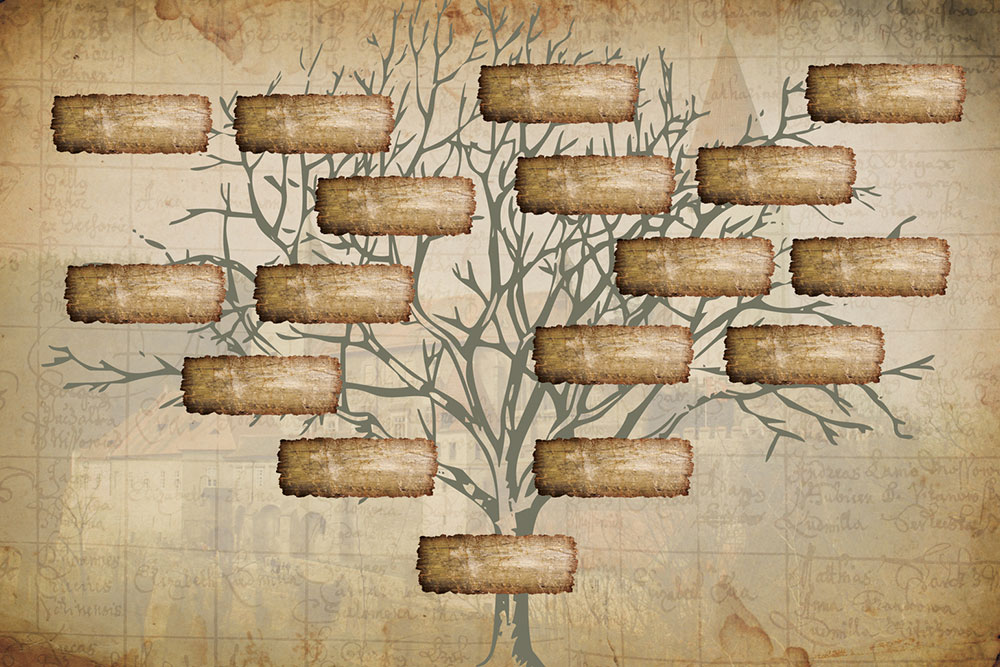5 mistakes to avoid when exploring family history

Researching family history can be a fascinating journey, uncovering surprising information about one’s ancestors. However, it’s important to exercise caution during the process, as mistakes in genealogy research can be time-consuming and might lead to the wrong family tree. Whether one’s a beginner or a seasoned genealogist, the key to finding reliable sources and obtaining positive and desired results is to make the right choices and steer clear of any potential mistakes.
Solely relying on online sources
Online sources are a great tool when looking for leads to find family history. But online databases are just one source; one cannot miss out on key offline sources such as libraries, archives, marriage licenses, birth and death certificates, land records, historical societies, etc., that can help in the search for one’s ancestors. Also, remember that not all the data found on the internet is accurate and reliable. Adding the wrong names or people to the family tree can bring one down to the starting point of the search. One needs to distinguish between real and fake data by verifying the source and adding it to the family tree. Dig deeper into the details of each family member by finding out the names of parents, spouses, children, and their professional occupations, among other factors.
Not asking the family what they know
Another big mistake most people make on their genealogy journey is procrastinating on talking to their family and close relatives about their family. The convenience of using the internet can be tempting at first, but the information collected firsthand with the help of immediate peers is more reliable. Make a list of all the known people, including family, friends, and close and distant relatives who know the family. One will get to know fascinating stories by interviewing relatives, especially elderly relatives, either via phone, video call, or in person. These people can provide a wealth of information about history that can be verified through photographs, old letters, and mementos. Note down questions beforehand, which can be used as a guide before the interview. Getting basic yet vital information from close peers can help streamline the process through the journey.
Not considering the spelling variations of surnames
Family names can vary in spelling and pronunciation, and it’s important to recognize the different ways they can be recorded. For instance, “Lewis” can be spelled as “Louis,” and “Brown” can appear as “Browne.” An accent or pronunciation misunderstanding recorded by the record creators can often result in name variation. When conducting research, it is crucial to consider the various phonetic spellings a surname can have spelled. It is potentially possible that the ancestors may be listed in records under different variations of their names.
People in the past were least concerned about the spelling of their names, which can lead to inconsistencies in historical records. Additionally, it was not uncommon for family members to modify the spelling of their surnames for ease of recollection or to assimilate into a new cultural environment. So, while researching, it is important to search for results with an open mind and look for commonalities that can help verify familial connections. While this process may be time-consuming and requires significant effort, it’ll ultimately lead to more accurate and comprehensive genealogy results.
Neglecting to document the sources
Remember to document the sources, including the source name, location, and date. If the information is from a book, record the title of the book , the author, the publisher, the specific page number, and the location (library, archive). When copying from the internet, record the complete link, or consider making a copy of the original document. This is important as online databases keep changing, and the source may not be available later. Documentation helps keep track of the source and the information’s origin. Additionally, one can always return to the source for more information or use it to help another member in research for their genealogy. Researching family history will be a valuable resource for future generations; therefore, documenting the information is essential.
Assuming that one’s connected to a famous personality
It is natural to jump to premature conclusions when exploring family history. Many people have connections to famous personalities, but many do not. It is wise not to believe a family story as proof of connection and start researching from a famous person related to the family. Instead, working backward can help one reach the desired outcome, one generation at a time, based on the information discovered. With diligent research, one may be able to find a connection to ancestors or uncover stories that may not hold any truth.
Exploring family history and finding ancestors is fun and involves substantial analysis of information. It helps one gain insights into family origins on the way. A great thing about starting this journey with genealogy is that one has the freedom to decide how much time and effort one wants to invest in it. So, if one wants to get an accurate picture of the family tree and history, strike off these common mistakes to increase the chances of getting the best information possible in less time.









